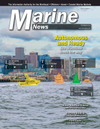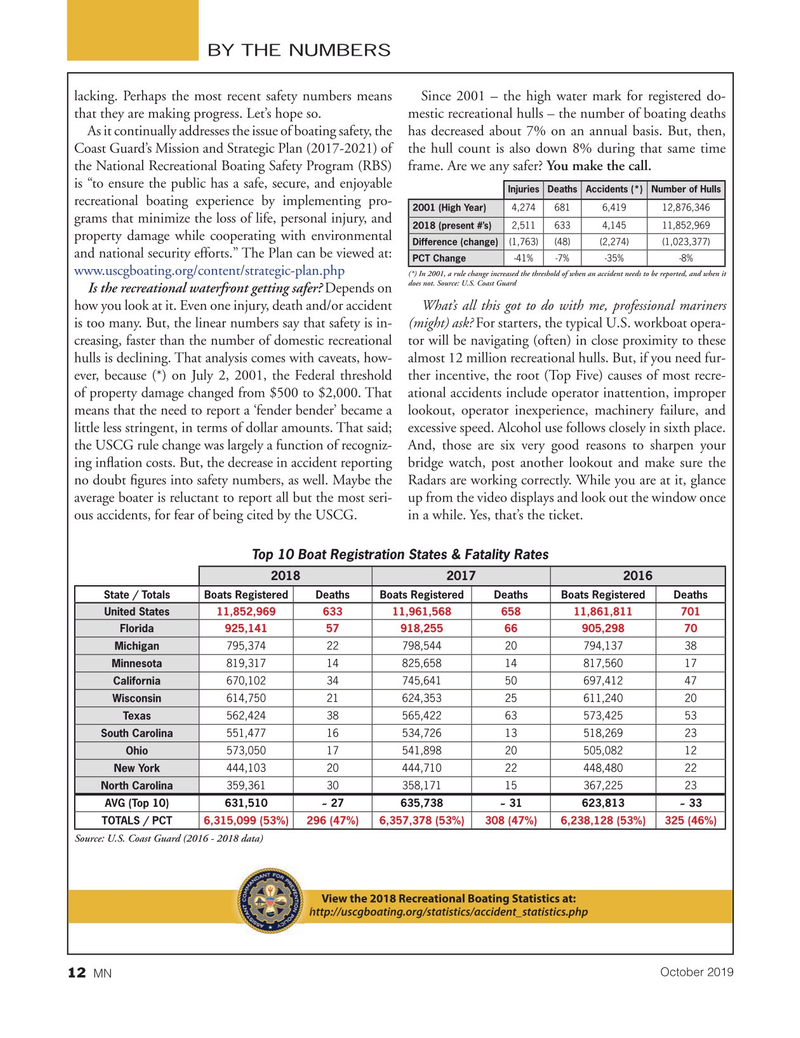
Page 12: of Marine News Magazine (October 2019)
Autonomous Workboats
Read this page in Pdf, Flash or Html5 edition of October 2019 Marine News Magazine
BY THE NUMBERS lacking. Perhaps the most recent safety numbers means Since 2001 – the high water mark for registered do- that they are making progress. Let’s hope so. mestic recreational hulls – the number of boating deaths
As it continually addresses the issue of boating safety, the has decreased about 7% on an annual basis. But, then,
Coast Guard’s Mission and Strategic Plan (2017-2021) of the hull count is also down 8% during that same time the National Recreational Boating Safety Program (RBS) frame. Are we any safer? You make the call.
is “to ensure the public has a safe, secure, and enjoyable
InjuriesDeathsAccidents (*)Number of Hulls recreational boating experience by implementing pro- 2001 (High Year) 4,2746816,41912,876,346 grams that minimize the loss of life, personal injury, and 2018 (present #’s) 2,5116334,14511,852,969 property damage while cooperating with environmental
Difference (change) (1,763)(48)(2,274)(1,023,377) and national security efforts.” The Plan can be viewed at:
PCT Change -41%-7%-35% -8% www.uscgboating.org/content/strategic-plan.php (*) In 2001, a rule change increased the threshold of when an accident needs to be reported, and when it does not. Source: U.S. Coast Guard
Is the recreational waterfront getting safer? Depends on how you look at it. Even one injury, death and/or accident What’s all this got to do with me, professional mariners is too many. But, the linear numbers say that safety is in- (might) ask? For starters, the typical U.S. workboat opera- creasing, faster than the number of domestic recreational tor will be navigating (often) in close proximity to these hulls is declining. That analysis comes with caveats, how- almost 12 million recreational hulls. But, if you need fur- ever, because (*) on July 2, 2001, the Federal threshold ther incentive, the root (Top Five) causes of most recre- of property damage changed from $500 to $2,000. That ational accidents include operator inattention, improper means that the need to report a ‘fender bender’ became a lookout, operator inexperience, machinery failure, and little less stringent, in terms of dollar amounts. That said; excessive speed. Alcohol use follows closely in sixth place. the USCG rule change was largely a function of recogniz- And, those are six very good reasons to sharpen your ing in

 11
11

 13
13
